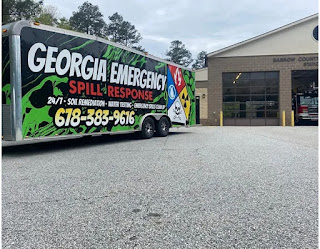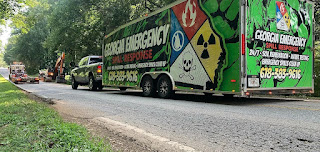Reason Why It’s a Good Practice for Safe Disposal of Hazardous Waste!
Environmental remediation is the process of mitigating or reversing the
effects of environmental contamination caused by human activities. It
includes a wide variety of techniques and processes, including removal
and containment of contaminated soil, water, and air on-site treatment
of contaminated materials, and off-site disposal of contaminated
materials.
Soil Remediation
Soil remediation
is the process of cleaning up or removing contaminants from soil that
may be causing environmental problems. This can include chemical or
physical methods such as removing and replacing contaminated soil, using
aeration to pump contaminated vapors out of the soil, or treating the
soil with chemicals to neutralize contaminants. Additionally, soil
remediation can involve processes such as soil stabilization, which is
the addition of a binding agent to a contaminated site to help reduce
permeability and prevent further contamination.
What is Hazardous Waste Management?
The true meaning of hazardous waste management
is the process of handling and disposing of hazardous materials safely
and responsibly. Hazardous waste can include toxic chemicals, medical
waste, industrial waste, and nuclear materials. Managing hazardous waste
requires special procedures to ensure that it is disposed of safely and
does not contaminate the environment or pose a threat to human health.
Reasons Why It’s Important to Practice Hazardous Waste Management:
Preventing Environmental Contamination
Hazardous waste can be highly toxic and can cause serious damage to
ecosystems if it is mishandled or disposed of improperly. By managing
hazardous waste properly, you can help protect the environment from
contamination and potentially harmful effects from pollutants.
Protecting Human Health
Exposure to hazardous materials can cause a range of health problems,
from minor ailments to serious illnesses or even death. By safely
disposing of or recycling hazardous materials, you can help protect
people from coming into contact with these materials and suffering from
their adverse effects.
Preserving Natural Resources
Many hazardous materials are derived from natural resources that are
increasingly scarce. By practicing safe disposal methods for these
materials, you can help preserve our finite resources for future
generations. Additionally, recycling certain hazardous materials such as
batteries can help reduce our dependence on new raw materials while
saving energy and reducing emissions associated with extracting and
producing new materials from scratch.
About Georgia Emergency Spill Response:
Georgia Emergency Spill Response is one of the leading companies that you can connect with if you need help with environmental remediation. They can point you in the right direction with spills.
For more details, visit https://www.georgiaspill.com/.




Comments
Post a Comment